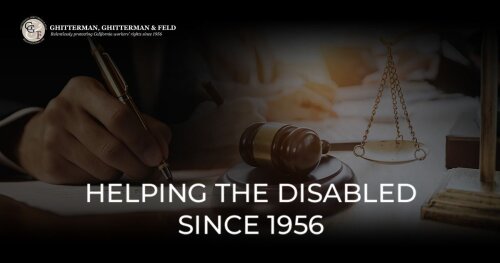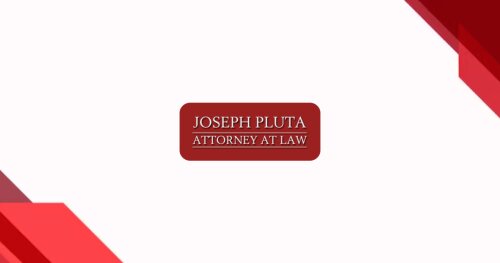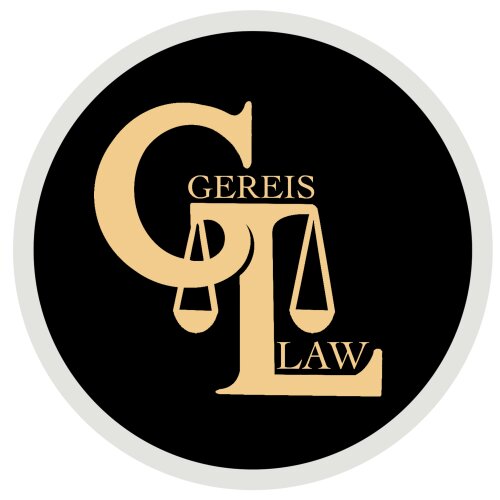Best Restructuring & Insolvency Lawyers in Bakersfield
Share your needs with us, get contacted by law firms.
Free. Takes 2 min.
List of the best lawyers in Bakersfield, United States
About Restructuring & Insolvency Law in Bakersfield, United States
Restructuring and insolvency law in Bakersfield is primarily concerned with helping businesses and individuals address significant financial distress. These legal frameworks offer solutions when debts cannot be paid as they fall due. Restructuring often refers to organizational or financial changes intended to restore profitability and stability, while insolvency refers to the legal process that follows when liabilities exceed assets. The legal processes involved are governed by both federal law, such as the United States Bankruptcy Code, and state-specific procedures within California, which can impact local cases in Bakersfield.
Why You May Need a Lawyer
Legal support is often essential in restructuring and insolvency matters due to the complexity of financial, procedural, and regulatory requirements. Common situations where you might need a lawyer include:
- Facing overwhelming business or personal debt
- Contemplating bankruptcy as a solution for debt relief
- Negotiating with creditors to restructure payment schedules
- Preparing for litigation related to debt collection or creditor claims
- Seeking to protect assets during insolvency proceedings
- Understanding the impact of insolvency on employment, contracts, or business operations
A lawyer can help you navigate court procedures, negotiate on your behalf, and protect your rights against creditor actions.
Local Laws Overview
While much of the bankruptcy process is governed by federal law, California has its own rules that can influence insolvency proceedings in Bakersfield. Individuals and businesses typically file for bankruptcy under Chapters 7, 11, or 13 of the United States Bankruptcy Code. California has specific exemptions that allow debtors to protect certain assets during bankruptcy. In Bakersfield, which is located in Kern County, bankruptcy cases are generally handled through the United States Bankruptcy Court for the Eastern District of California.
Additionally, California’s state laws address issues such as assignments for the benefit of creditors, receiverships, and how certain debts (like taxes, child support, or student loans) are treated. Local procedural rules and preferences by trustees or the court in Bakersfield can also affect case timing and outcomes.
Frequently Asked Questions
What is the difference between restructuring and insolvency?
Restructuring typically involves renegotiating debts or reorganizing business operations to avoid insolvency, while insolvency is a state where you are unable to pay your debts and may involve legal processes such as bankruptcy.
What types of bankruptcy are available in Bakersfield?
Individuals usually file for Chapter 7 (liquidation) or Chapter 13 (debt reorganization), while businesses often use Chapter 11 (business reorganization). Each type has distinct eligibility requirements and outcomes.
Can I keep my house or car if I file for bankruptcy in Bakersfield?
California law provides exemptions that may allow you to protect certain assets, including your house or vehicle, but the specifics depend on your situation and the bankruptcy chapter you file under.
How long does the bankruptcy process take?
Chapter 7 bankruptcy typically takes three to six months. Chapter 13 cases can take three to five years, as they involve repayment plans. Chapter 11 duration varies based on the complexity of the business structure and debts involved.
Will bankruptcy stop creditors from contacting me?
Yes, once you file for bankruptcy, an automatic stay prevents most creditors from contacting you or pursuing collection actions during the proceedings.
Can all types of debt be discharged through bankruptcy?
No. While many debts can be discharged, obligations like alimony, child support, most taxes, and student loans are generally not dischargeable under federal law.
Do I have to go to court for bankruptcy in Bakersfield?
Most bankruptcy cases require at least one appearance at a meeting of creditors, also called a 341 meeting, which is not a formal court hearing. Other appearances may be needed if your case is complex or contested.
What is a bankruptcy trustee?
A bankruptcy trustee is a person appointed to oversee your case, review your financial situation, and ensure proper distribution of any assets to creditors according to applicable laws.
Can filing for bankruptcy affect my business in Bakersfield?
Yes, bankruptcy can significantly impact operations, ownership structure, and contracts. However, with proper planning, some businesses can continue to operate and emerge stronger post-restructuring.
Is it possible to negotiate with creditors without filing for bankruptcy?
Yes. A restructuring lawyer can help negotiate informal agreements or settlements with creditors, which may allow you to avoid court and continue your operations outside of bankruptcy.
Additional Resources
If you need more information or assistance regarding restructuring and insolvency in Bakersfield, consider consulting these resources:
- United States Bankruptcy Court, Eastern District of California
- Kern County Law Library
- California Department of Business Oversight
- Legal Aid Association of California
- Small Business Development Center - Kern County
- California State Bar Association - Bankruptcy Law Section
These organizations can provide guidance, educational materials, or direct you to experienced local attorneys.
Next Steps
If you believe you need legal assistance regarding restructuring or insolvency in Bakersfield, consider taking the following steps:
- Assess your current financial situation and gather all relevant financial documents.
- Make a list of your creditors, assets, and liabilities.
- Consult with a qualified restructuring and insolvency lawyer familiar with local practices in Bakersfield.
- Ask about your options, potential outcomes, and costs involved in each legal pathway.
- Follow the advice of your attorney and maintain clear communication throughout the process.
Seeking prompt legal counsel can help you understand your rights, preserve your assets, and achieve the most favorable resolution possible for your financial challenges.
Lawzana helps you find the best lawyers and law firms in Bakersfield through a curated and pre-screened list of qualified legal professionals. Our platform offers rankings and detailed profiles of attorneys and law firms, allowing you to compare based on practice areas, including Restructuring & Insolvency, experience, and client feedback.
Each profile includes a description of the firm's areas of practice, client reviews, team members and partners, year of establishment, spoken languages, office locations, contact information, social media presence, and any published articles or resources. Most firms on our platform speak English and are experienced in both local and international legal matters.
Get a quote from top-rated law firms in Bakersfield, United States — quickly, securely, and without unnecessary hassle.
Disclaimer:
The information provided on this page is for general informational purposes only and does not constitute legal advice. While we strive to ensure the accuracy and relevance of the content, legal information may change over time, and interpretations of the law can vary. You should always consult with a qualified legal professional for advice specific to your situation.
We disclaim all liability for actions taken or not taken based on the content of this page. If you believe any information is incorrect or outdated, please contact us, and we will review and update it where appropriate.














